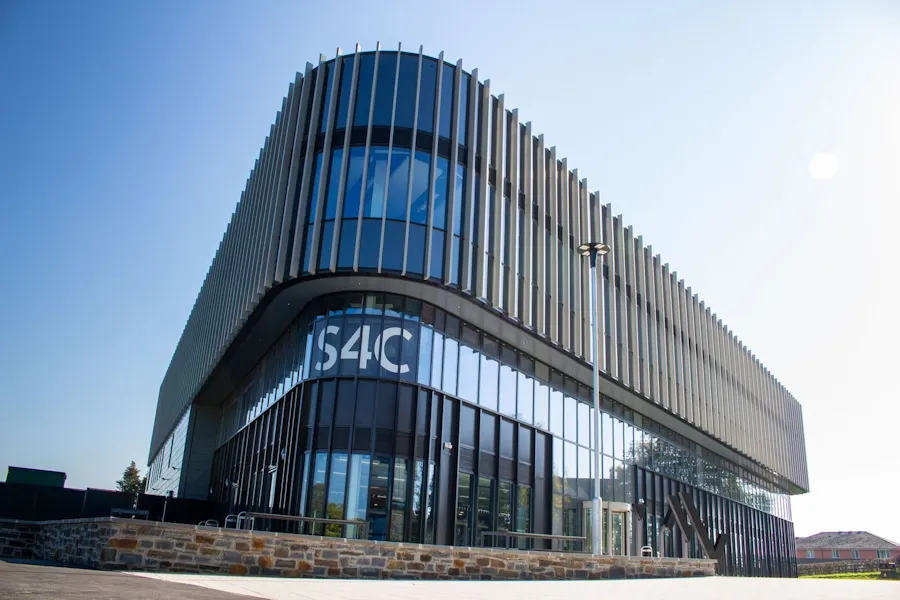Business
Wales Tourism Alliance criticises Mark Drakeford’s visitor levy evidence

THE WALES TOURISM ALLIANCE has strongly criticised comments made by Cabinet Secretary for Finance, Mark Drakeford, during his evidence session to the Welsh Government Finance Committee regarding the proposed Welsh Visitor Levy. The WTA argues that Drakeford’s remarks misrepresent the scale of the tourism industry and downplay the potential economic consequences of the levy.
What is the visitor levy?

The proposed Visitor Levy, commonly referred to as the “tourism tax,” would allow local authorities in Wales to introduce a charge on visitors staying in overnight accommodation. The Welsh Government argues that this levy would help support local infrastructure and services used by tourists. However, industry representatives and local businesses fear that it will deter visitors, particularly in key tourism-dependent areas such as Pembrokeshire.
Pembrokeshire, home to one of Wales’ most popular tourist destinations, Tenby, relies heavily on tourism revenue. Business owners, accommodation providers, and tourism operators in the county have expressed significant concerns that the levy could put off visitors, leading to reduced spending in local shops, restaurants, and attractions. Many have pointed out that, with the cost-of-living crisis already squeezing holiday budgets, an additional charge could push visitors to choose alternative destinations outside Wales.
Employment figures disputed
Drakeford claimed that the tourism and hospitality sector in Wales employs “a million” people and would not struggle to absorb the loss of several hundred jobs due to the levy. He also suggested that many tourism jobs are seasonal, have flexible hours, and are high-churn, implying that job losses would be manageable.
However, the WTA strongly disputes these figures, citing Welsh Government data that places the number of people employed in the sector at approximately 159,000. Given this significantly lower number, the loss of even a few hundred jobs would be far more impactful than Drakeford suggests. Furthermore, the WTA argues that seasonal and part-time jobs play a crucial role in providing employment opportunities, particularly for young people and those with caregiving responsibilities, such as parents and carers—groups that may struggle to find work in other sectors.
Concerns over data reliability
Drakeford also accused industry representatives, including the WTA, of selectively using worst-case scenario data in their evidence to the committee. The WTA rejects this claim, arguing that the data underpinning the Visitor Levy’s economic impact assessment is flawed and unreliable.
This concern was echoed by Professor Calvin Jones, the author of the Welsh Government’s own Visitor Levy Economic Impact Assessment. In his evidence to the Finance Committee, Jones stated: “We know very little about how the tourism economy in Wales works… we know very little about what drives visitors to come to Wales; we know almost nothing about how much they’re spending when they’re here… there isn’t even any data anymore on… how much is spent on accommodation… it should be a very uncomfortable place for Senedd Members to be when they’re trying to make policy or audit policy on tourism.”
Impact on families and educational visits
Drakeford defended the inclusion of children in the Visitor Levy by comparing it to VAT on sweets, arguing that children are not generally exempt from taxation. However, the WTA points out that this analogy is flawed, as children’s clothing, shoes, and books are zero-rated for VAT in the UK. The WTA also highlights that many other countries with tourism taxes exclude under-18s from such charges.
The per-person nature of the levy means that families will be disproportionately affected. For instance, two adults staying in accommodation for a week would pay a levy of £21, whereas a family of six would pay £63 for the same stay. Moreover, the WTA raises concerns that the levy will also apply to children on school trips and educational visits, adding an extra financial burden on families and schools.
Impact on Pembrokeshire’s tourism sector
Pembrokeshire businesses, particularly those in coastal tourist hotspots like Tenby, Saundersfoot, and St Davids, are among those voicing the strongest opposition to the levy. Many fear that it will discourage visitors from choosing Welsh destinations, instead opting for other parts of the UK or even holidaying abroad.
Tourism plays a vital role in Pembrokeshire’s economy, providing employment for thousands and sustaining local businesses. According to industry figures, over 4 million visitors come to Pembrokeshire each year, contributing hundreds of millions to the local economy. Hospitality providers in the region have warned that the levy could have serious repercussions, particularly for independent hotels, B&Bs, and campsites that rely on high occupancy levels during peak season to remain viable year-round.
A local B&B owner in Tenby, speaking to The Herald, said: “We are already seeing the effects of rising costs on bookings. If people are being asked to pay extra on top of accommodation prices, they will simply look elsewhere. We rely on repeat visitors and families who come year after year—this levy could drive them away.”
Wider economic impact
Drakeford dismissed the idea that the Visitor Levy would contribute to the cumulative challenges faced by the tourism and hospitality sector, stating that these issues “do not collide on all of the sector.”
The WTA strongly disagrees, asserting that tourism is a holistic industry where changes in one area inevitably impact others. They highlight several pressures already affecting tourism businesses, including:
- The 182-day rule for self-catering properties.
- National Insurance increases.
- The removal of furnished holiday let tax relief.
According to the WTA, these combined factors are already forcing many small, locally-run self-catering businesses to close, further weakening the sector and putting more jobs at risk.
WTA’s final response
Rowland Rees-Evans, Chair of the WTA, criticised Drakeford’s approach, stating: “We are disappointed that Mr Drakeford is dismissing the valid concerns raised by industry experts and academics and making claims that are factually incorrect.
Many people in Wales are unaware that the Visitor Levy will apply to anyone staying in ‘Visitor Accommodation’—including children on educational visits and people working away from home, even if they already live in Wales.
The bottom line is that the Visitor Levy will cost people in Wales money and jobs—even in the best-case scenario presented by the Welsh Government. Mr Drakeford seems content to push through a policy that is poorly conceived, offers no guaranteed financial benefit to Wales, and threatens hundreds of jobs in an industry that employs over 20% of the workforce in some parts of the country.
Given the current economic climate, it is difficult to understand why the person responsible for managing the Welsh budget would consider imposing such a levy at this time.”
The debate over the proposed Visitor Levy continues, with industry representatives calling for more robust data, a clearer assessment of economic consequences, and a reconsideration of its implementation before the policy is finalised.
Business
Builder wins court case against his solicitor — but still hasn’t seen a penny years later

Retired builder won over £130k from Milford Haven form Price and Kelway in 2022 for negligence, but is still waiting to be paid due to ongoing divorce
A NOW-RETIRED Pembrokeshire builder who won a six-figure professional negligence case against his former solicitors says he has still not received any of the money — almost four years after the court ruled decisively in his favour.
David Norman Barrett secured judgment in 2022 after a judge found that failures by the law firm Price & Kelway had caused him to lose the opportunity to pursue a potentially valuable claim against HSBC and HSBC Life.
The court ordered that damages, interest and costs totalling £130,820 be paid. Permission to appeal was refused.
Yet Mr Barrett says the legal victory has brought him no closure — because he has yet to see a single pound.

A clear win on paper
The negligence case arose from a failed property development at Ludchurch, near Narberth, where Mr Barrett borrowed money from HSBC in 2007 to purchase land and build two houses.
He later alleged that the bank departed from an agreed funding model, draining development funds prematurely and leaving the project financially unviable. He also claimed that associated life insurance policies were mis-sold.
After years of dispute with the bank — including an unresolved complaint to the Financial Ombudsman Service — Mr Barrett instructed Price & Kelway.
He did this after hearing a radio advert for the solicitor’s firm on Radio Pembrokeshire. On November 7, 2012 Mr Barrett had a meeting with Mr Gareth Lewis, a partner in the firm.
“After that date and paying the a large amount in legal fees, progress was slow”, Mr Barrett said.
He added: “I gave Mr Lewis lots of paperwork, but work was not done in a timely fashion”
Proceedings against HSBC were eventually issued too late and struck out as time-barred, court documents show.
In 2022, the court found that the solicitors had failed to properly advise on limitation deadlines and that this negligence caused Mr Barrett a “loss of chance” to pursue or settle his claims.
Damages were assessed at £42,000, with statutory interest and costs bringing the total award to £130,820.
Money paid — but not released
Documents seen by The Herald show that following the conclusion of the case, a portion of the judgment money — £34,405.49 after fees and disbursements — was paid into the client account of Mr Barrett’s own solicitors, Red Kite Law LLP.
However, correspondence confirms that the funds have not been released due to an ongoing divorce between Mr Barrett and his wife, Dianne Carol Barrett, who was also named as a joint claimant in the negligence proceedings.
Red Kite Law has stated in writing that it cannot distribute the money without agreement from both parties, or a court order determining entitlement. The firm has also made clear that it cannot hold client money indefinitely and may ultimately be required to pay the funds back into court if the dispute remains unresolved.
‘This was business money’
Mr Barrett strongly disputes that the judgment award forms part of the matrimonial assets.
He told The Herald that the negligence case related entirely to his work as a self-employed builder and property developer, and that the damages awarded were compensation for business losses.
“This money didn’t arise from our marriage,” he said.
“It arose from my business. I was a sole trader. The claim was about my development project and professional advice I received as a builder.
“It wasn’t family savings or joint income. It was compensation for business losses.”
Mr Barrett says the stress and financial pressure of the prolonged litigation played a significant role in the breakdown of his marriage.
Years of financial strain
Earlier cost breakdowns from the case show that Mr Barrett personally paid more than £16,000 over several years to fund the negligence action, alongside significant unpaid disbursements incurred as the case progressed.
He says the litigation drained his finances long before judgment was handed down and left him struggling even after he technically “won”.
Now reliant on his pension and benefits, he says the continued freezing of the remaining funds has left him in financial limbo.
A legal deadlock
Where competing claims exist over money held in a solicitor’s client account, firms can find themselves acting as stakeholders.
Under professional rules, solicitors may retain funds until entitlement is resolved by agreement or court order, to avoid the risk of releasing money to the wrong party.
Red Kite Law has stated that it cannot advise either Mr Barrett or his wife on the dispute due to a conflict of interest, and has suggested options including a restricted joint account or transfer to a neutral third party — proposals which, to date, have not resolved the deadlock.
Personal cost
Beyond the legal arguments, Mr Barrett says the personal toll has been severe.
“The case broke us,” he said.
“And even after winning, I’m still fighting — this time just to get what the court already awarded.”
No allegation of wrongdoing
The Herald stresses that no finding of wrongdoing has been made against Red Kite Law LLP.
The firm has not been accused of acting unlawfully, and the dispute centres on how the judgment award should be classified and distributed in light of ongoing matrimonial proceedings.
The case raises wider questions about whether winning in court always delivers justice — and how long successful litigants can be left waiting for payment when personal and legal systems collide.
The Herald contacted Price and Kelway for comment at their main email address, but at the time of publication had received no response.
HSBC have also been contacted.
Business
S4C seeks two new non-executive directors to join its Board

S4C is recruiting two new non-executive directors to join its Board as the Welsh-language broadcaster continues its shift towards a digital-first future.
The appointments process is being led by the Department for Culture, Media and Sport, with final decisions made by the UK Government’s Secretary of State for Culture, Media and Sport.
The channel is seeking candidates with a broad range of skills and experience, with particular interest in those with backgrounds in digital media, content production or law.
S4C said it is looking above all for people with a strong commitment to public service broadcasting and a desire to help shape the organisation’s next phase of development.
In recent months, the broadcaster launched its new strategy, More Than a TV Channel, aimed at expanding its reach beyond traditional television. Initiatives include producing its first Welsh-language vertical drama for TikTok and forming a partnership with BBC iPlayer to widen access to its programmes.

Board chair Delyth Evans said the appointments come at a pivotal time.
She said: “It’s a particularly exciting time for S4C as we deliver the ambitions set out in our strategy, More Than a TV Channel.
“S4C is already much more than a television channel, with content available across a range of platforms, and through the significant economic and cultural contribution the service makes to Wales and the Welsh language.
“As we continue on this journey, we welcome applications from people who want to play a vital role in shaping the future of S4C.”
The closing date for applications is Friday (Feb 27).
Further details and the full job description are available via S4C.
For enquiries, contact Tomos Evans at [email protected]
.
Business
Tax deadline for self-employed and landlords as digital system goes live in April

Quarterly online reporting to become mandatory for higher earners under HMRC shake-up
MORE than 860,000 sole traders and landlords across the UK are being urged to prepare now for major changes to the way they report tax, with new digital rules coming into force in just two months.
From April 6, thousands of self-employed workers and property landlords earning over £50,000 a year will be required to keep digital records and submit quarterly income updates to HM Revenue & Customs under the Government’s Making Tax Digital scheme.
The changes form part of a wider overhaul designed to modernise the tax system and reduce errors.
Instead of submitting figures once a year, those affected will use approved software to record income and expenses throughout the year and send short quarterly summaries to HMRC. Officials stress these are not extra tax returns, but updates intended to spread the workload and avoid the usual January rush.
Free and paid software options are available, with the system automatically generating the figures needed for submission.
At the end of the tax year, users will still file a Self Assessment return, but most of the information will already be stored digitally.
Craig Ogilvie, HMRC’s Director of Making Tax Digital, said the move should make tax reporting simpler.
He said: “With two months to go until MTD for Income Tax launches, now is the time to act. The system is straightforward and helps reduce errors. Thousands have already tested it successfully.
“Spreading your tax admin throughout the year means avoiding that last-minute scramble to complete a tax return every January.”
More than 12,000 quarterly updates have already been submitted during a voluntary trial.
Phased rollout
The new rules will be introduced gradually:
• From April 2026 – those earning £50,000 or more
• From April 2027 – those earning £30,000 or more
• From April 2028 – those earning £20,000 or more
To ease the transition, HMRC says it will not issue penalty points for late quarterly submissions during the first 12 months.
After that, a points system will apply, with a £200 fine only triggered once four late submissions are reached.
Anyone unable to use digital tools for genuine reasons can apply for an exemption.
Tax agents and accountants are advising clients to prepare early to avoid last-minute problems.
Further guidance, webinars and sign-up details are available via GOV.UK.
-

 Crime3 days ago
Crime3 days agoSex offender jailed after living off grid in Pembrokeshire and refusing to register
-

 Health2 days ago
Health2 days agoHealth board targets rise in steroid and gym drug use across west Wales
-

 News4 days ago
News4 days agoPrincess of Wales visits historic Pembrokeshire woollen mill
-

 Health6 days ago
Health6 days agoDoctor struck off after sexual misconduct findings at Withybush Hospital
-

 Crime2 days ago
Crime2 days agoTeacher injured and teenager arrested for attempted murder at Milford Haven School
-

 Education7 days ago
Education7 days agoIndustry insight helps marine cadets chart career course
-

 Crime4 days ago
Crime4 days agoHakin man’s appeal delayed again as Crown Court seeks guidance on insurance law
-

 News6 days ago
News6 days agoHerald journalists to feature in true-crime documentary on local lockdown murder





























